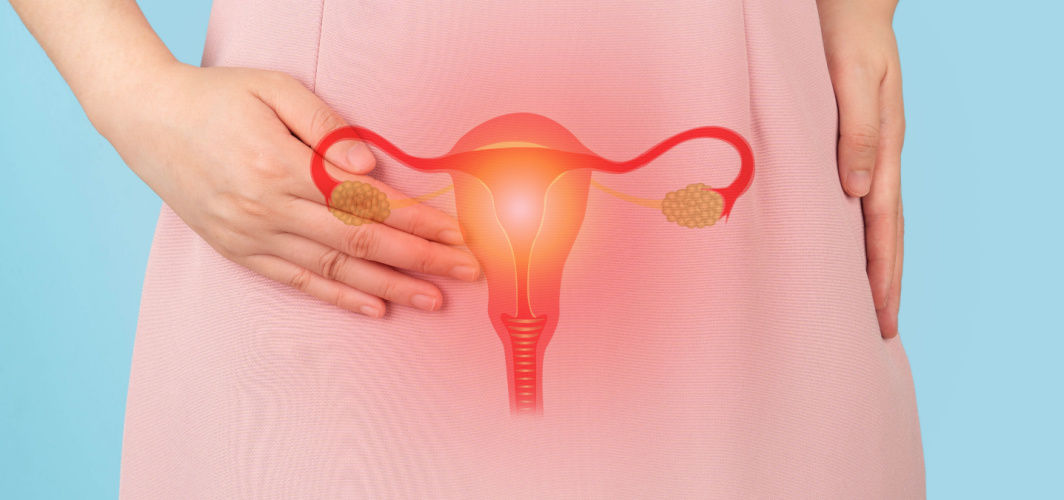Women's Wellness
8 Tests To Diagnose Polycystic Ovary Syndrome In Women
3 min read
By Apollo 24|7, Published on - 22 May 2023, Updated on - 24 July 2025
Share this article
0
1 like

You’ll be surprised to know that 1 in every 10 women PCOS stands for Polycystic Ovary Syndrome, a hormonal disorder that affects women of reproductive age. It is characterised by multiple fluid-filled sacs (cysts) on the ovaries and hormonal imbalances. PCOS is also associated with metabolic abnormalities such as insulin resistance, which can lead to an increased risk of developing type 2 diabetes and cardiovascular problems.
While diagnosing polycystic ovary syndrome (PCOS), blood tests play a crucial role in unravelling its complexities. By examining hormone imbalances and metabolic intricacies, these blood tests shed light on PCOS and offer a deeper understanding of its inner workings.
Blood Tests That May Help Diagnose PCOS
Several blood tests that may help diagnose polycystic ovary syndrome (PCOS) include:
1. Follicle-stimulating hormone (FSH)
FSH helps stimulate the growth and development of follicles in the ovaries. In PCOS, FSH levels may be normal or slightly elevated.
2. Luteinising hormone (LH)
LH helps in triggering ovulation. In PCOS, LH levels may be higher than normal as compared to FSH levels, resulting in an increased LH/FSH ratio.
3. Testosterone
Elevated testosterone (a male hormone) levels can be observed in PCOS. Total testosterone and free testosterone levels may be measured to assess the androgen (male hormone) levels in the body.
4. Sex hormone-binding globulin (SHBG)
SHBG is a protein that binds to sex hormones, including testosterone. If you have PCOS, SHBG levels would be lower.
5. Anti-Mullerian hormone (AMH)
AMH is a marker for ovarian reserve and is often elevated in PCOS. Increased AMH levels can indicate the presence of more, small ovarian follicles.
6. Prolactin
Elevated levels of prolactin, a hormone involved in milk production, may be associated with PCOS.
7. Glucose and insulin
Insulin resistance and impaired glucose tolerance are common in PCOS. Fasting blood glucose and insulin levels may be measured to assess metabolic function.
8. Lipid profile
PCOS is often associated with elevated cholesterol levels and triglycerides. A lipid profile can help evaluate cardiovascular risk factors.
It's important to note that the diagnostic criteria for PCOS involve a combination of symptoms, physical examination, and other tests, such as pelvic ultrasound, to assess the ovaries. Additionally, every case can be different, therefore, a healthcare professional is best equipped to determine which specific tests are necessary for an accurate diagnosis.
Recommended read : Overcoming PCOS and Infertility with Ayurveda Treatment
Symptoms Of PCOS
While the symptoms can vary from person to person, here are some common symptoms:
1. Irregular periods: Women with PCOS may experience infrequent, unpredictable, or prolonged menstrual cycles.
2. Excessive hair growth: It can cause excessive hair growth on the face, chest, abdomen, or back (hirsutism). This is often accompanied by thinning hair or hair loss on the scalp.
3. Acne: Many women experience persistent acne or severe outbreaks due to hormonal imbalances.
4. Weight gain: Many women with PCOS may experience weight gain or have difficulty losing weight.
5. Insulin resistance: PCOS is associated with insulin resistance, which can lead to high blood sugar levels and an increased risk of developing type 2 diabetes.
6. Polycystic ovaries: Women with PCOS may have enlarged ovaries containing multiple small cysts. However, the presence of cysts alone is not sufficient for diagnosis.
7. Mood swings and depression: Hormonal imbalances can contribute to mood swings, irritability, and an increased risk of developing depression.
It's important to note that not all women with PCOS will experience every symptom, and the severity of symptoms can vary.
In conclusion, PCOS is a complex hormonal disorder that can significantly impact the lives of women. Blood tests are valuable tools in diagnosing PCOS and provide insights into the hormonal imbalances and metabolic abnormalities associated with the condition. For expert advice,
Leave Comment
Recommended for you

Women's Wellness
Menopause: The Different Stages
The entire process of menopause is divided into three transitional stages. The symptoms and duration of each transition are usually different for each woman.

Women's Wellness
5 Major Health Issues Every Woman Should Know About
Women are at a higher risk of several diseases than men. Adopting healthy habits and regular clinical checkups can significantly reduce the risk of these diseases in women.

Women's Wellness
Dear Women, This Is Exactly Why You Can’t Go Low On Potassium!
This article focuses on determining the daily requirements for potassium in women and the negative effects of taking too much or too little of it.
Subscribe
Sign up for our free Health Library Daily Newsletter
Get doctor-approved health tips, news, and more.
Recommended for you

Women's Wellness
Menopause: The Different Stages
The entire process of menopause is divided into three transitional stages. The symptoms and duration of each transition are usually different for each woman.

Women's Wellness
5 Major Health Issues Every Woman Should Know About
Women are at a higher risk of several diseases than men. Adopting healthy habits and regular clinical checkups can significantly reduce the risk of these diseases in women.

Women's Wellness
Dear Women, This Is Exactly Why You Can’t Go Low On Potassium!
This article focuses on determining the daily requirements for potassium in women and the negative effects of taking too much or too little of it.